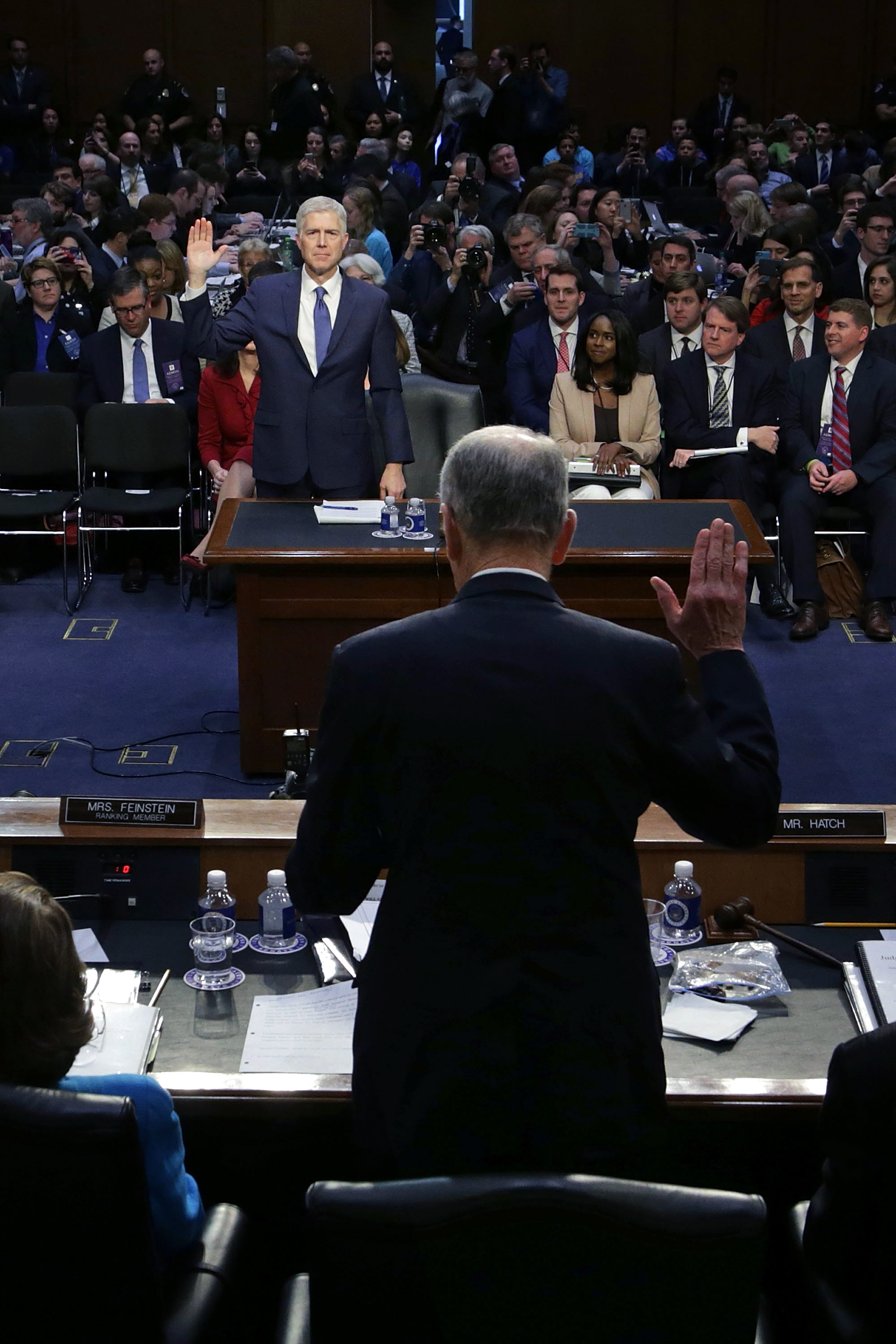Last week did a great deal of damage to Senate Majority Leader Mitch McConnell‘s (R-Kentucky) reputation as a legislative tactician. Some of this is fair and some of it is a stretch, but this seems like a good time to consider what it is that makes someone good at this. Often lost in the conversation is the fact that McConnell’s greatest achievements thus far lay in preventing action, and our political system is biased in that same direction.
The American lawmaking process is distinct for its vast number of chokepoints. There are dozens of ways for a bill to die in the interim between a member first proposing it and the president signing it. Any successful bill has to survive numerous committee hearings and floor votes. Then it has to go through the same process in the other chamber. Then a unified version of the bill must be produced and both chambers must vote again. It can survive all of this only to get vetoed by the president. This process can take months or years, and the bill’s initial supportive coalition might have changed members or minds in the intervening time. All of this is why, of the more than 10,000 bills introduced in a typical year, only around 4 percent end up becoming law.
And many of the ones that do become law are actually the easy ones—postal bills, bills honoring the memory of individuals, and others that have near-unanimous support. Controversial ones rarely get through. Given all the chokepoints, there’s a great deal of inertia. It’s generally far easier for a bill to fail than to pass.
The controversial ones that do get through usually have a lot going for them. Usually, they’re stated priorities of the president or the chamber leaders, who can offer both a range of carrots and sticks to get legislators to support the bill. Maybe some spending can be adjusted to particularly help out the district of a recalcitrant legislator, or maybe that legislator can bank some promise of future support.
It’s worth noting the work that President Barack Obama and Speaker of the House Nancy Pelosi did to get the Affordable Care Act passed. This was a bill that had a lot of enemies, was not terribly popular, and suffered a severe setback with the death of Senator Ted Kennedy in August of 2009. Democratic leaders nonetheless pushed for its passage. Pelosi, knowing that Democrats in the House of Representatives from marginal districts might pay a cost at the polls for supporting it, kept tight whip counts and freed up enough members to vote against the bill while still retaining majority support for it. This was a significant policy accomplishment for Democrats and the young Obama administration, and it took skill to pull off.

(Photo: Alex Wong/Getty Images)
By contrast, most of McConnell’s accomplishments have come in the form of preventing action. His biggest policy achievement thus far has been holding a Supreme Court seat open during the last year of the Obama presidency. The result—the seating of Neil Gorsuch rather than Merrick Garland as associate justice—will have enormous consequences for decades to come. But McConnell’s actions required no legislative maneuvering whatsoever. They simply required the audacity to not do something that the Senate has historically always done. His willingness to stand fast despite the political pressure surely counts for something, and he faced considerable risk if Hillary Clinton had become president, Democrats had taken over the Senate, and a more liberal justice than Garland ended up on the court, all of which was within the realm of possibilities last year. But that didn’t happen.
During Obama’s presidency, much of what McConnell was trying was to prevent progress on Obama’s agenda. He didn’t have a great deal of success during the brief period that Democrats had a 60-seat majority in 2009, but he managed to hold his caucus together thereafter pretty successfully. But again, he wasn’t necessarily putting any legislation through.
Like McConnell, conservative groups like the Freedom Caucus tend to define themselves in terms of negative power. As Representative Raúl Labrador (R-Idaho) explained: “When we stop bad legislation, it’s just as functional as when you pass good legislation.” But this, in a way, is juicing the stats. Stopping legislation is far easier than passing it. When you hear a politician brag about a bill they killed, recognize there’s a good chance that bill would have died anyway.
It’s possible that last week’s failure of the Republican health care bill wasn’t a fair test of McConnell’s talents. After all, it was a monumentally unpopular bill, championed by an unpopular president, that sought to take away a benefit millions of constituents enjoy. It’s very hard to hold a coalition together under such circumstances. Perhaps McConnell really does have some ability to push a bill through. But we haven’t seen those skills in action yet.




